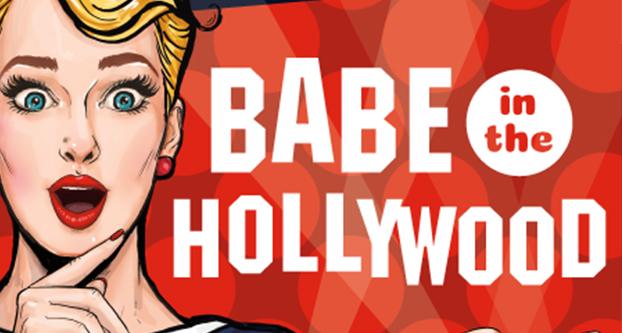Toni Weingarten had just graduated from Fresno State in 1977 when she moved to Los Angeles to try to make it in Hollywood.
“I was very green. I didn’t have a clue, and it was like ‘Alice in Wonderland,’” Weingarten said.
She was inspired by her experience and made a one-woman show, “Babe in the Hollywood.” The show follows a young woman “with stars in her eyes,” grappling with show business as she realizes that Hollywood life isn’t for her after all.
Weingarten will perform her show as a part of the 2018 Rogue Festival at Fulton Street Art on March 2, 3, 8 and 10.
Originally from Oakland, Weingarten found herself in Fresno in 1972 after leaving behind the anti-war and People’s Park protests near UC Berkeley.
“By the time there’s helicopters, the police, tear gas and all that stuff, and your classes are canceled all the time — it was just enough,” she said.
Weingarten said she was considering to become a pre-law major and become a lawyer like her father, but a feminist art class under the guidance of Joyce Aiken, founder of the feminist Gallery 25, led her in a new direction to become a fine arts major.
In “Babe in the Hollywood,” she discusses an art project she worked on that was on display in the Henry Madden Library during the 70s. After a two-day run, the display was shut down after calls of a bomb threat.
But this didn’t stop her experimentation with art. Weingarten continued to paint, draw and even explored video as an art form as she studied for her bachelor’s in fine art.
“[Fresno State] gave me the space to explore and try things that I normally otherwise wouldn’t have, because I probably would have been really trapped on my career,” she said.
After graduation, Weingarten made the move to Los Angeles in 1977. She said the size and lifestyle of the city was overwhelming at first, and she stayed inside her apartment with the curtains shut the first few days as she adjusted.
“It’s so big, and you’re used to living someplace where you feel like you can kind of get the town under your thumb, so to speak. That never happens in Los Angeles,” Weingarten said.
Weingarten details her career in her show, which started with her experiences working in film and television production. Her first job was as a quality control print inspector for Procter and Gamble where she watched commercials to check for streaks, and to make sure the lighting and sounds were appropriate.
“It’s not very glamorous,” she said.
As she got to network, Weingarten worked on TV shows, industrial film and in the story department of a film studio.
But not every aspect of the industry was perfect. Though many of the men Weingarten worked with were gentlemen, she still experienced instances of sexism.
“When I was going to college, especially when I got to Hollywood, there were very few women in positions of power. It was mostly men,” she said.
Weingarten recalled one experience working at MGM Studios when there was a woman vice president. She said a man at the company remarked, “I wonder who she slept with to get the job?”
While working as an assistant to a producer, she said she was told, “Gee, honey, you’re so bright. It’s a shame you don’t know shorthand,” insinuating that she should be a secretary instead.
But Weingarten recognizes Hollywood as its own entity because a big part of it is about marketing sexuality, she said. She also viewed it as a “transient” place as people came and went in the business and in the city.
“It’s not like Fresno or Oakland, some place where people grow up and they live there and their kids grow up and they live there [too],” she said. “It’s a place where people come to make it.”
The biggest turnoff that pulled Weingarten out of Hollywood was the culture of self-promotion, she said.
“Every time people get together, all they want to ask you about is what project you’re working on, so you don’t get the feeling that people really want to spend time with you just because they like you,” she said. “It’s just about, ‘What can you do for me?’”
After her work in the film and television business, Weingarten decided to pursue a new career venture — journalism. She returned to school and earned her master’s degree in journalism. She then wrote news for a TV station and worked on documentaries, corporate videos and interactive media.
Now, Weingarten works as a writer and performer. Along with this show, she is working on other projects such as a collaborative piece exploring mental health and illnesses.
Working on “Babe in the Hollywood” has helped Weingarten to appreciate being normal.
“A lot of times when you graduate from high school, you want to be really unique and special and not be a drone like other people in the world,” she said. “I think Hollywood taught me that sometimes being normal and ordinary is a gift.”





Samuri • Mar 2, 2018 at 2:36 pm
Toni Weingarten, you are amazing! You can do, and achieve, anything you want. Be intimidated by NONE. You KNOW what I’m talking about, Sister, she said, with a slightly wicked grin.